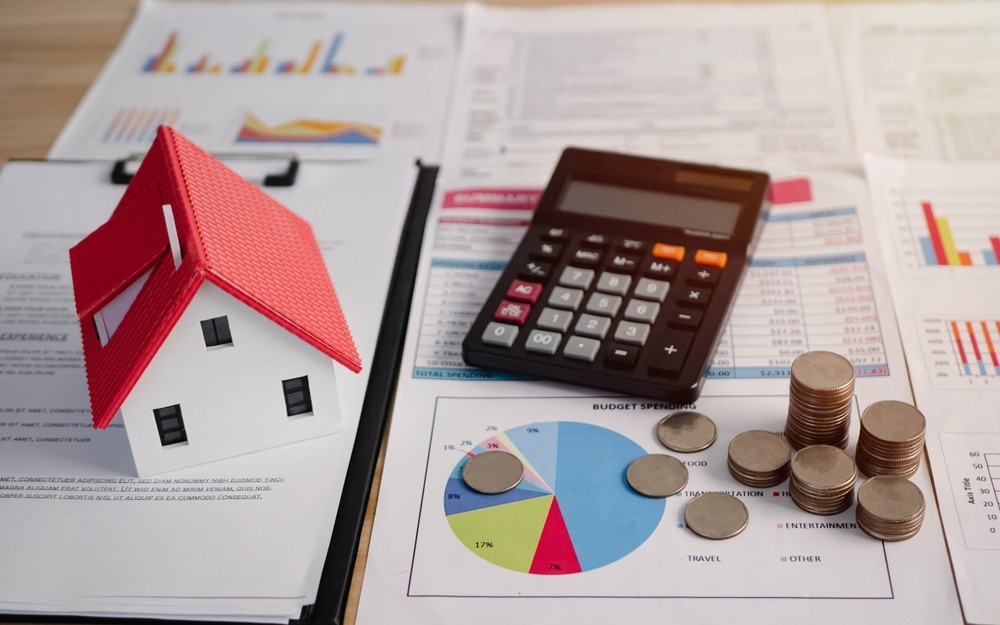Property taxes are a significant financial obligation for homeowners across the globe. They are often one of the largest carrying costs for owning a home and can sometimes even exceed mortgage payments, particularly in areas with high assessed property values and tax rates. Unfortunately, many homeowners inadvertently make missteps that can lead to higher property tax bills.
Understanding Property Taxes
Property taxes are typically levied by local governments and are used to fund public services such as schools, fire departments, and infrastructure maintenance. The amount homeowners owe is generally based on the assessed value of their property multiplied by the local tax rate. While this seems straightforward, numerous factors can affect both the assessment and the rate, leading to potential missteps.
Overlooking Property Assessments
One of the most common missteps homeowners make is failing to review their property’s assessed value. Local governments usually reassess properties every few years to reflect changes in market value. However, these assessments can sometimes be inaccurate due to outdated information or human error.
Homeowners should:
- Review the assessment notices when they are issued.
- Compare the assessed value with recent sales data for similar properties in the area.
- Ensure that the property description and features used for the assessment are correct.
If discrepancies are found, homeowners typically have a limited window to contest the assessment. Ignoring this can result in paying higher taxes than necessary.
Misunderstanding Tax Exemptions and Reliefs
Many jurisdictions offer various tax exemptions and relief programs designed to reduce the tax burden for eligible homeowners. These include homestead exemptions, senior exemptions, and benefits for veterans or disabled individuals. Failing to apply for these exemptions is a costly oversight.
Homeowners should:
- Research the exemptions or reliefs available in their area.
- Ensure they meet the eligibility criteria and submit applications by the required deadlines.
- Regularly check for any changes in legislation that might introduce new opportunities for tax relief.
By not taking advantage of these programs, homeowners could be missing out on significant savings on their property taxes.
Ignoring Tax Rate Changes
Another factor influencing property taxes is the local tax rate, which can change due to budgetary needs or public vote outcomes. Homeowners often overlook these changes or underestimate their impact on the tax obligation.
To stay informed, property owners should:
- Regularly attend local government meetings where tax changes are discussed.
- Participate in local votes regarding tax rate adjustments.
- Review local government budgets and financial reports.
By staying informed and participating in local governance, homeowners can better anticipate changes to their tax obligations and plan accordingly.
Improper Renovations and Improvements
Home improvements can increase a property’s value, which in turn can lead to higher property taxes. Many homeowners undertake renovations without fully understanding the tax implications. Adding square footage, updating kitchens or bathrooms, and extensive landscaping are improvements that can significantly increase assessed value.
To avoid unexpected tax increases, homeowners should:
- Consult with local tax assessors to understand how planned renovations could affect assessments.
- Consider the potential tax increase when budgeting for home improvements.
- Prioritize improvements that not only add value but are beneficial in the long run to justify possible tax hikes.
Strategically planning renovations with future tax implications in mind can prevent surprising increases and manage costs more effectively.
Failing to Appeal Unfair Assessments
Assessments can sometimes disproportionately increase compared to the actual market or neighborhood trends. Many homeowners are unaware that they have the right to appeal these assessments. Failing to do so can lead to perpetually high tax bills.
The appeal process can be daunting but is worth considering if:
- There is a significant discrepancy between the assessed value and comparable properties.
- Unfavorable changes in neighborhood or market conditions have not been reflected in the assessment.
- The property has physical issues that were not considered during assessment.
Following through with an appeal can potentially save substantial amounts on property taxes for years to come.
Paying Tax Bills Late
Late payment of property tax bills can lead to fines, interest, and penalties that compound over time, making them financially burdensome. This misstep can also lead to a lien being placed on the property or even foreclosure in extreme cases.
To avoid this, homeowners should:
- Set reminders for property tax due dates well in advance.
- Consider setting up payment schedules if available, to manage cash flow better.
- Take advantage of early payment discounts if offered by the jurisdiction.
Timely payment not only avoids penalties but also contributes positively to homeowners’ credit profiles.
Underestimating the Impact of Neighborhood Changes
Neighborhood changes, such as the development of new amenities, improved infrastructure, or changes in school district boundaries, can affect property values and, consequently, tax bills. Homeowners often overlook these changes only because they happen gradually.
To mitigate surprises:
- Keep abreast of local redevelopment plans and projects.
- Engage with neighborhood committees and associations to stay informed about local decisions.
- Factor potential neighborhood upgrades into long-term financial plans.
By proactively monitoring these changes, homeowners can anticipate shifts in assessments that will directly impact their tax liabilities.
Choosing the Wrong Property
When in the market to buy a home, prospective homeowners sometimes fail to analyze the long-term tax implications of their purchase. Buying a property in a high-tax jurisdiction or not considering potential tax hikes can lead to unsustainable financial commitments.
To make informed decisions, buyers should:
- Research tax rates and recent historical changes in areas they are considering.
- Factor in the likely growth in tax obligations given future development plans or municipal financial needs.
- Consider the overall tax burden in the context of their long-term financial goals.
Strategically selecting a property that aligns with one’s tax comfort level ensures manageable financial obligations over time.
Property tax missteps can be costly, but they are often avoidable with due diligence and proactive management. By understanding and navigating the complexities of property assessments, tax exemptions, local governance, and potential future developments, homeowners can save significantly and make more educated financial decisions.



